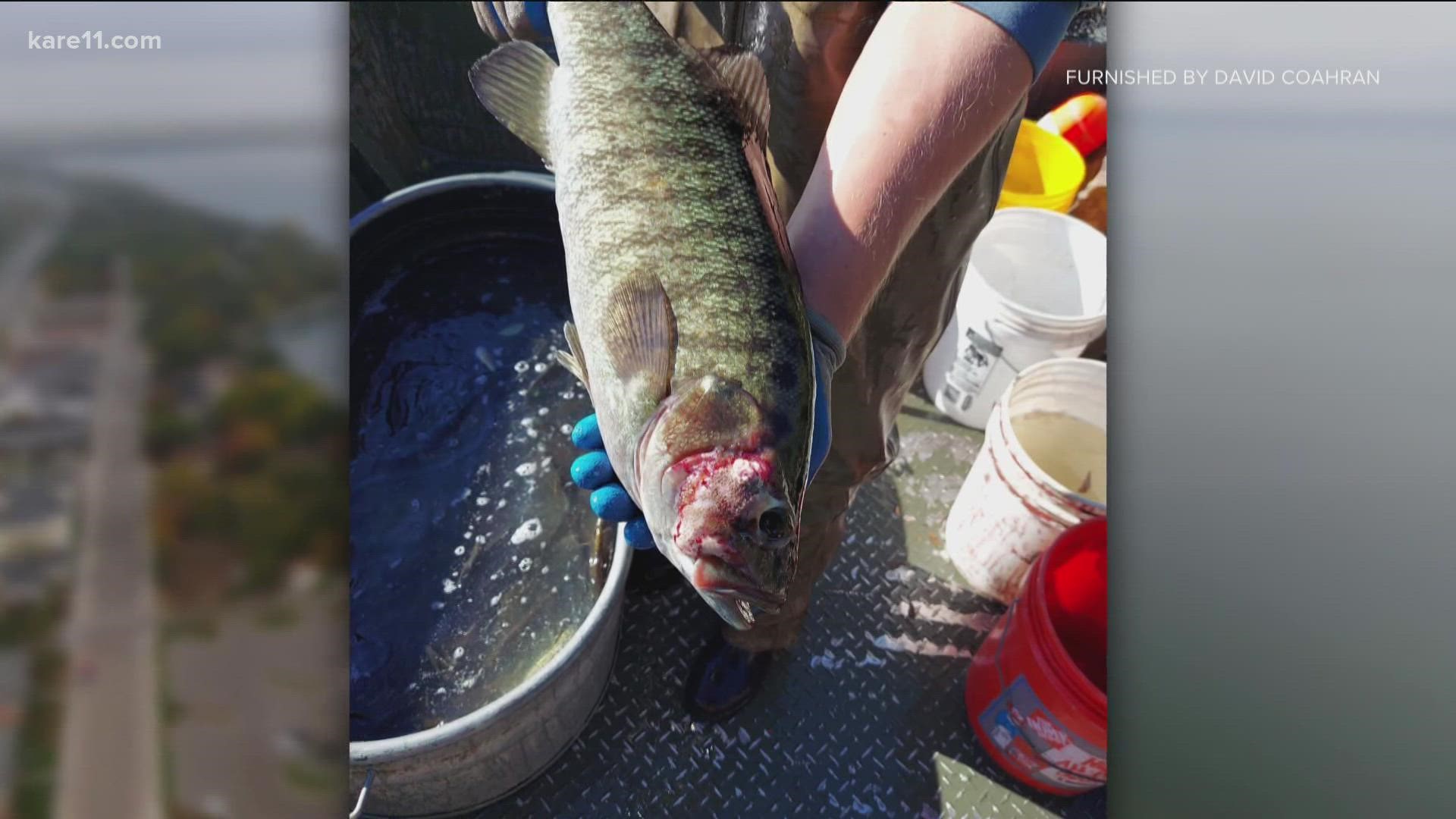SPICER, Minn. — When Minnesota Department of Natural Resources officer Dave Coahran started to receive call after call about dead fish, initially, he wasn't too concerned.
"The first one was from a lady who – she didn't even know what kind of fish they were – but she said there were three or four dead fish on her beach," Coahran said. He said those kinds of calls usually don't cause alarm, but when he kept receiving more emails about online chatter regarding the dead fish in Green Lake in Spicer, Minnesota, he started to worry a little more.
"[The chatter] talked about small mouth bass – more than just a few being found dead in Green Lake and possibly speculating it looked like from the chatter, knife wounds," he said. "And intentionally killing of small mouth bass in Green Lake."
Normally, a question of who is killing fish in a lake isn't really asked.
But spooky coincidence has it, Green Lake has a dark history of people, knifing small mouth bass.
"Fifteen or 20 years ago, there were people who actually admitted to doing that, so...it wasn't, I guess, out of the question when folks were speculating online that this would possibly be reoccurring again out here," Coahran said.
Turns out, it wasn't a "who" at all. It was a virus.
"There's a virus that is associated with these lesions in this fish, called large mouth bass virus, and they're still trying to determine if there is enough viral load in this fish to have caused the mortality," Coahran explained. "So we haven't determined if these actually caused the death."
But they caused the wounds for sure – well, indirectly.
Coahran said the virus weakened the immune systems of the fish, causing bacterial infections that ate away the flesh that looks like knife wounds.
And why this wasn't a problem before? Well, the water used to be cooler.
"It's possible that these lakes are changing, through the decades and the water is getting warmer because of changes in climate," Coahran said.
Knowing that this is not a nefarious copy cat incident from the early 2000s is good. However, now they've got an invisible enemy, which at this point, they can't do much about.
"It's possible that something can be done, changes could be made but I don't anticipate anything but discussing the issue," he said. "And trying to figure out what to do in the future if it becomes more of a common occurrence."

